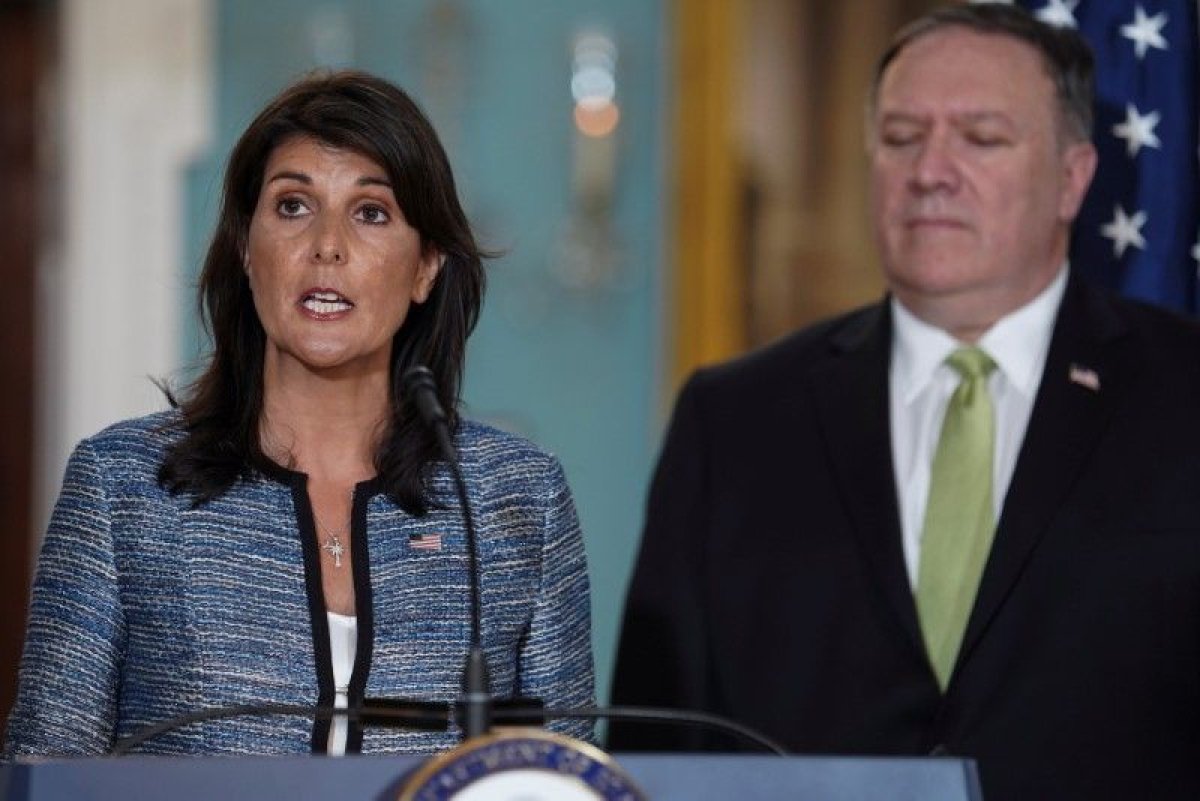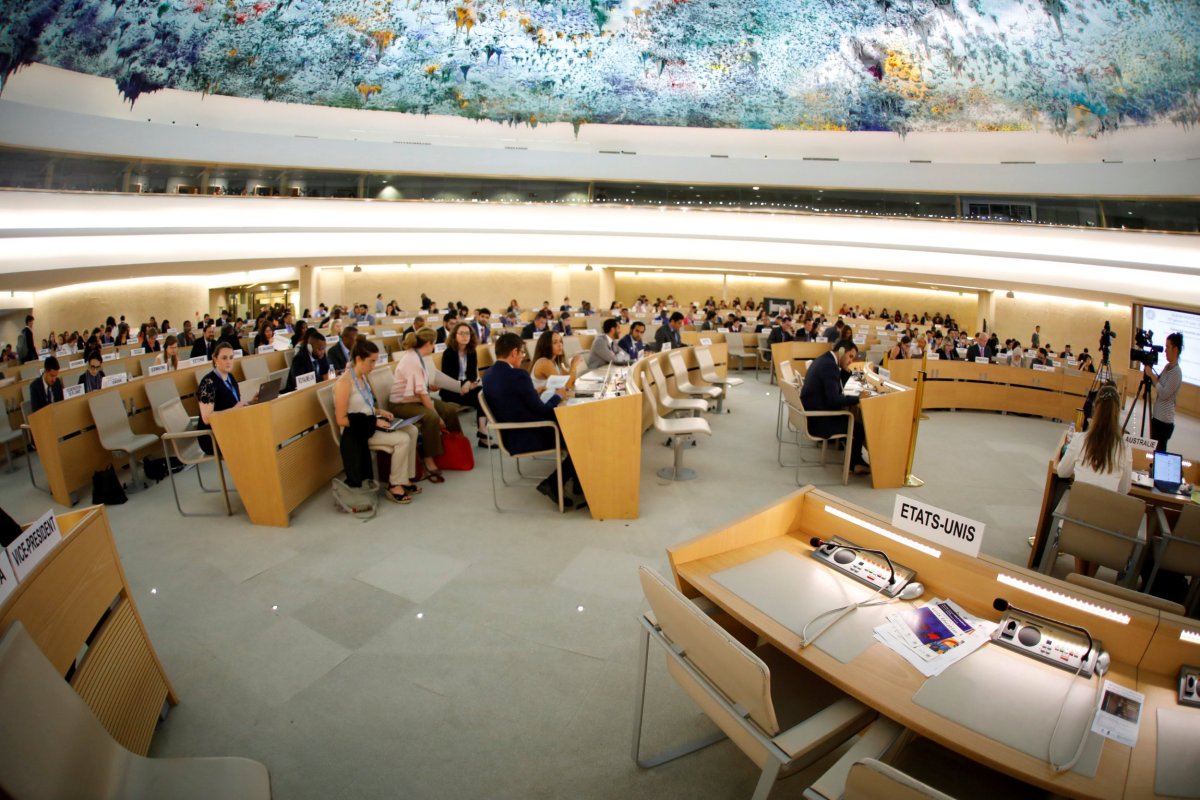After the U.S. announced Tuesday it would withdraw from the United Nations Human Rights Council, Russia has put forward its candidacy to rejoin the body.
Nikki Haley, the U.S. ambassador to the U.N., branded the council as a "cesspool of political bias" that "makes a mockery of human rights" as she announced America's disengagement. In a joint press conference with Secretary of State Mike Pompeo, Haley said the council was "hypocritical and self-serving," while Pompeo called it "a poor defender of human rights."
Vice President Mike Pence said on Twitter that the council "has engaged in ever more virulent anti-American, and anti-Israel invective," declaring that "the days of U.S. participation are over."

Responding to Washington's decision, Russia said the council is meant to serve all U.N. members, not just the U.S. "The USA deliberately ignore this fact in their attempt to turn the HRC into [a] tool to promote only their interests," the Russian Mission to the U.N. said in a Twitter post.
In addition, Russia moved to rejoin the council following Hailey and Pompeo's announcement, The Moscow Times reported. In 2016, Russia lost its seat on the council after rights groups lobbied successfully against its candidacy.
Created in 2006, the 47-member council has a mandate to promote and protect human rights around the world. It also investigates allegations of human rights abuses in U.N. countries. Member states campaign and are elected to serve terms of three years.
The council meets three times annually to review the rights records of all U.N. members, and it offers each nation the opportunity to present how it has been working to improve human rights. Although the council has no real power to punish offenders, it aims to draw attention to abuses around the globe.
Washington has had a troubled relationship with the council since it was formed during the George W. Bush administration. At its inception, the U.S. refused to join, citing perceived bias against Israel and the inclusion of countries with poor human rights records. Things changed under President Barack Obama, and the U.S. joined the body in 2009. It was elected to serve again in 2012.

Many critics have called out the organization for electing Cuba, China, Russia and Saudi Arabia in 2013. They argued that giving repressive states a position on the council allows them to continue their policies with greater impunity.
In recent months, the U.S. had routinely criticized the council for its position on Israel and ongoing Palestinian protests along the Gaza border. Israeli military forces have killed more than 100 Palestinian demonstrators since the end of March. Israel is the only state subject to a permanent standing agenda item—meaning its policy toward the Palestinians is regularly discussed—despite significant rights abuses by other nations around the world.
Israel welcomed the U.S.'s withdrawal, with Prime Minister Benjamin Netanyahu calling the decision "courageous" on Twitter. He went on to say that the rights council is a "biased, hostile, anti-Israel organization that has betrayed its mission of protecting human rights."
Uncommon Knowledge
Newsweek is committed to challenging conventional wisdom and finding connections in the search for common ground.
Newsweek is committed to challenging conventional wisdom and finding connections in the search for common ground.
About the writer
Jason Lemon is a Weekend Editor at Newsweek based in Brooklyn, New York. Prior to taking on the editor role, Jason's reporting focused on ... Read more
To read how Newsweek uses AI as a newsroom tool, Click here.








